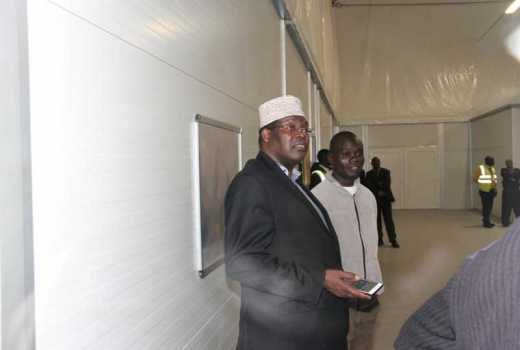×
The Standard e-Paper
Home To Bold Columnists

Nobody doubted that Miguna Miguna's homecoming—after his highly publicised deportation in February—would be dramatic. What no one expected was the melodrama that ensued at Jomo Kenyatta International Airport on Monday that climaxed with the attempted deportation of the self-styled general of the so-called National Resistance Movement (NRM) to Dubai.
After an eight-hour stand-off that involved the intervention of NASA leader Raila Odinga, Dr Miguna lost the battle to re-enter the country.